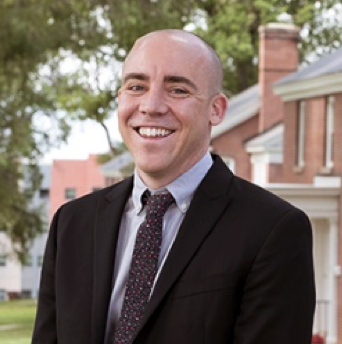Abstract:
I. C-N bond breaking: Amines are ubiquitous functional groups that are simple to prepare and functionalize. We show that tertiary amines can template reductive cyclization reactions, forming biaryl and bibenzyl carbon–carbon bonds. These cyclic amine products can undergo carbon–carbon bond-forming amine rearrangement and deaminative contraction reactions, providing efficient access to polycyclic (hetero)aromatics, natural products, and [n]helicenes. These strategies and our understanding of deaminative mechanisms will be presented.
II. C-N bond making: Residue-selective methods for peptide modification and cyclization are useful for the development of therapeutic peptides with improved metabolic stability properties. The Roberts laboratory draws inspiration from cyclic peptide natural products that exhibit a host of promising biological properties. Motivated by the phenolic linkages found in both the arylomycin and vancomycin families of natural products, we have developed methods that leverage the in situ generation of 1,2,4-triazoline-3,5-dione moieties on native peptides to achieve tyrosine-selective cyclizations. In awe of lasso peptides, non-covalently interlocked and proteolytically-stable bioactive natural products, we are working to develop strategies for reversible isopeptide bond formation that could enable the sequence-independent chemical synthesis of lasso peptides. Detailed accounts of these methods and their applications will be presented.
Bio:
Andrew G. Roberts was born and raised in Long Beach, California. He earned his B.S. Chemistry degree in 2008 from UC San Diego where he first learned organic synthesis with Dr. Haim Weizman in the Tor laboratory. Andrew then conducted his Ph.D. thesis research concerning the total chemical synthesis of dimeric pyrrole-imidazole alkaloid natural products with Prof. Patrick G. Harran at UC Los Angeles (2008–2013). These bioactive and synthetically challenging molecules enabled the development of chemical methods for guanidine synthesis and manipulation. He went on to conduct postdoctoral research with Prof. Samuel J. Danishefsky at Memorial Sloan Kettering Cancer Center as an NIH postdoctoral fellow (2013–2017). This experience provided two opportunities to address questions at the interface of synthetic protein chemistry and cancer biology. Andrew collaborated with two teams to complete the chemical protein synthesis and evaluation of granulocyte colony-stimulating factor (G-CSF) and oncogenic KRas(G12V) proteins, with respective support from Drs. Moore (MSKCC) and Verdine (Harvard). Both synthetic protein targets enabled the development of new strategies for peptide ligation and demonstrated efficient chemical protein synthesis endeavors. Research in the Roberts laboratory (University of Utah, Department of Chemistry) is focused on the discovery of novel reactions to enable the total synthesis of bioactive natural products and the design of structure-stabilized therapeutic peptides.
Speaker:
Institution:
Location:

